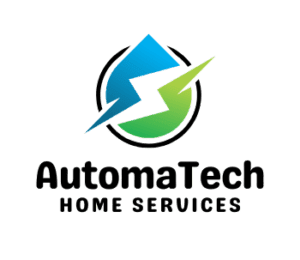The global shift towards sustainable and renewable energy sources has brought solar energy into the spotlight. As a clean, inexhaustible, and increasingly cost-effective source of power, solar energy presents numerous advantages from reducing greenhouse gases to decreasing our dependence on fossil fuels. Whether you’re a student, professional, or simply someone interested in sustainability and clean energy, learning about solar energy can be an enriching and exciting journey. The following guide outlines several comprehensive steps to help you understand this radiant energy source and its transformative potential for our planet’s future.
Learning about solar energy can be an exciting journey! It’s a vast field that’s crucial to our planet’s future, involving science, technology, economics, policy, and much more. Here are several steps to help you get started:
- Understand the basics of solar energy: Before diving into more complex topics, familiarize yourself with the basic principles of solar energy. Understand what it is (the sun’s rays converted into usable energy), how it’s captured (using photovoltaic cells or concentrated solar power systems), and why it’s important (for example, it’s renewable, abundant, and reduces greenhouse gas emissions). Resources like books, online articles, and videos can be useful for this step.
- Start with introductory courses: Online education platforms such as Coursera, edX, and Khan Academy offer courses on solar energy and renewable energy. These courses can provide a structured learning experience and often include assessments to test your understanding.
- Dive into books: There are several great books available that delve into the technicalities of solar energy, the industry, and its potential for our future. Some recommended ones are “Solar Energy: The Physics and Engineering of Photovoltaic Conversion, Technologies and Systems” by Arno Smets, and “Taming the Sun: Innovations to Harness Solar Energy and Power the Planet” by Varun Sivaram.
- Follow news and blogs: The solar industry is rapidly evolving. Following news outlets, blogs, and websites that cover renewable energy can help you stay updated. Websites like PV Magazine, Solar Power World, and Greentech Media provide news and insights about the industry.
- Explore solar energy systems: Learning about the various types of solar energy systems can be enlightening. There are photovoltaic systems that convert sunlight directly into electricity, concentrated solar power that uses mirrors or lenses to concentrate a large area of sunlight onto a small area, and solar heating and cooling systems.
- Understand the economics and policy: The economics of solar energy (including cost, return on investment, and subsidies) and the policies governing its use are important factors in the solar industry. Resources from the International Renewable Energy Agency (IRENA) or the U.S. Department of Energy can be very helpful in understanding these aspects.
- Hands-on learning: If possible, consider getting a hands-on learning experience. This could be through a workshop, internship, or even a DIY solar project. Building a small solar panel or a solar-powered device can give you a practical understanding of how solar energy works.
- Join a community: There are many communities and forums online where you can interact with other people interested in solar energy, ask questions, and share what you’ve learned. Websites like the Solar Panel Talk forum and Reddit’s r/solar community can be great places to start.
Remember, learning about solar energy or any topic takes time, patience, and curiosity. Start at a pace you’re comfortable with and gradually delve deeper into the topics you find most interesting.
Understand the Basics of Solar Energy
 Understanding the basics of solar energy is the first critical step in your learning journey. Solar energy is the conversion of the sun’s rays, also known as solar radiation, into usable energy forms, typically heat and electricity.
Understanding the basics of solar energy is the first critical step in your learning journey. Solar energy is the conversion of the sun’s rays, also known as solar radiation, into usable energy forms, typically heat and electricity.
What is Solar Energy?
Solar energy, at its most basic, is energy from the sun. This energy is emitted as particles of light, or photons, which travel from the sun to the Earth. When these photons hit an object, they transfer their energy, warming the object. This is the principle behind solar thermal energy.
But, more commonly when we think of solar energy, we think of electricity production. This is possible thanks to the photovoltaic effect, a process that occurs in certain materials that can absorb photons and release electrons. When these free electrons are captured, an electric current results that can be used as electricity.
How is Solar Energy Captured?
There are two main ways to capture solar energy: photovoltaic (PV) cells and concentrated solar power (CSP) systems.
- Photovoltaic Cells: These are the most common method for capturing solar energy. When sunlight strikes a PV cell, it may be absorbed by the cell’s semiconductor material (often silicon-based). The energy of the absorbed light is transferred to electrons, knocking them loose and creating an electric current.
- Concentrated Solar Power Systems: In contrast to PV cells, CSP systems generate solar power by using mirrors or lenses to concentrate a large area of sunlight onto a small area. The concentrated light is then typically used to heat a fluid, which generates steam to drive a turbine connected to an electrical power generator.
Why is Solar Energy Important?
Solar energy is critical for several reasons:
- Renewable and Abundant: Solar energy is a renewable resource, meaning it won’t run out as long as the sun exists. In terms of abundance, enough sunlight hits the Earth every hour to meet the entire world’s energy needs for a year.
- Reduces Greenhouse Gas Emissions: Unlike fossil fuels, solar energy production emits no greenhouse gases. This makes it a key part of efforts to combat climate change.
- Diversifies the Energy Supply: Solar energy provides an alternative to traditional fossil fuel sources, thus reducing dependence on these resources and improving energy security.
To dive deeper into these basics, consider checking out resources such as the Energy Education pages of many universities, or online platforms like Coursera and Khan Academy. Online articles, books, and videos on platforms like YouTube can also be invaluable resources for visual learners.
Start with Introductory Courses
 Online courses are a fantastic way to systematically learn about solar energy. They often provide a comprehensive and structured approach to learning, combining theory with practical examples and self-assessment tools to measure progress. Here are a few online platforms where you can find courses on solar energy and renewable energy:
Online courses are a fantastic way to systematically learn about solar energy. They often provide a comprehensive and structured approach to learning, combining theory with practical examples and self-assessment tools to measure progress. Here are a few online platforms where you can find courses on solar energy and renewable energy:
Coursera:
Coursera offers a range of courses from universities and institutions worldwide. You might want to consider courses like:
- “Solar Energy Basics” by the University of Rochester.
- “Solar Energy Engineering” by Delft University of Technology.
- “Renewable Energy and Green Building Entrepreneurship” by Duke University.
edX:
edX also hosts a variety of solar energy-related courses from prestigious universities. Notable courses include:
- “Solar Energy: Photovoltaic (PV) Energy Conversion” by Delft University of Technology.
- “Solar Energy: Photovoltaic (PV) Technologies” by the University of Queensland.
Khan Academy:
While Khan Academy does not offer dedicated solar energy courses, it does provide a wealth of knowledge on physics, chemistry, and earth science, all of which can strengthen your understanding of the principles underlying solar energy.
Before starting a course, consider your current level of understanding, how in-depth you want to go, and the amount of time you can dedicate to the course. Most platforms will give a rough estimate of the time commitment for each course, as well as an outline of what will be covered.
Keep in mind that while some courses can be accessed for free, others might require payment, especially if you want a certificate of completion. However, the investment can be worthwhile considering the depth of knowledge you’ll gain.
Dive into Books
 Reading books on solar energy can provide in-depth insights, including the technical aspects of solar energy, how the industry operates, and the potential of solar energy for our future. Here are a couple of recommended books to get you started:
Reading books on solar energy can provide in-depth insights, including the technical aspects of solar energy, how the industry operates, and the potential of solar energy for our future. Here are a couple of recommended books to get you started:
“Solar Energy: The Physics and Engineering of Photovoltaic Conversion, Technologies and Systems” by Arno Smets, Klaus Jäger, Olindo Isabella, René van Swaaij, and Miro Zeman
This book provides a comprehensive understanding of the principles of solar energy and photovoltaics. It covers various topics, including how solar cells work, how they are made, and how to calculate the efficiency of solar panels. The authors use a systematic approach, starting with the global energy balance and ending with PV systems and applications.
“Taming the Sun: Innovations to Harness Solar Energy and Power the Planet” by Varun Sivaram
Varun Sivaram, a leading expert in clean energy, explores the potential of solar power innovation in his book. The book not only looks at the existing technology and industry around solar but also explores what innovations are needed for solar to fulfill its potential. This book is a great mix of technical knowledge, policy discussion, and industry insights.
“Photovoltaic Design and Installation For Dummies” by Ryan Mayfield
This book is a practical, step-by-step guide to take you through the process of designing and installing a solar photovoltaic system for practical use. It’s ideal for those interested in hands-on applications or DIY solar projects.
“The Solar Electricity Handbook” by Michael Boxwell
This is a practical guide for anyone considering a solar energy project. Whether you’re installing a few solar panels on your rooftop or designing a completely off-grid system, this book provides comprehensive insights and easy-to-understand explanations.
Remember to take notes while reading to help reinforce the information and identify areas you might want to research further.
Follow News and Blogs
 The solar industry is dynamic and rapidly changing, with advancements in technology, shifts in policy, and fluctuating market conditions. Staying informed about these changes is crucial for anyone interested in solar energy. Here are some recommended resources:
The solar industry is dynamic and rapidly changing, with advancements in technology, shifts in policy, and fluctuating market conditions. Staying informed about these changes is crucial for anyone interested in solar energy. Here are some recommended resources:
PV Magazine:
This international online magazine focuses on photovoltaics (solar power generation) and covers the latest news, technology, and market trends in the solar industry.
Solar Power World:
A leading online and print resource for news and information regarding solar power and its related technologies. It covers everything from new projects to policy updates to technical product information.
Greentech Media:
Greentech Media delivers renewable energy news and provides comprehensive market analysis and industry insights. Although their scope is broader than just solar, they have excellent coverage of the solar sector.
CleanTechnica:
This website focuses on the latest news and views on clean technology and renewable energy. It covers solar energy extensively but also includes information on other renewable energy sources, electric vehicles, and energy storage.
RenewEconomy:
This is an Australian-based online publication focused on renewable energy and the transition to a clean energy economy. It provides news, analysis, and commentary on renewable energy technologies and policies.
Utility Dive:
This news outlet provides in-depth journalism on the utility industry, including solar energy. It is a useful resource for understanding how solar fits into the broader energy market.
In addition to these, following relevant social media accounts and joining forums and communities related to solar energy can also be beneficial for staying up-to-date and networking with others in the field. Similarly, subscribing to newsletters from key organizations and companies in the solar industry can provide regular updates straight to your inbox.
Explore Solar Energy Systems
 Exploring different types of solar energy systems allows you to understand the diverse applications of solar energy and how each system functions to harness the sun’s power. Here are three primary types of solar energy systems:
Exploring different types of solar energy systems allows you to understand the diverse applications of solar energy and how each system functions to harness the sun’s power. Here are three primary types of solar energy systems:
Photovoltaic (PV) Systems:
These are the most common type of solar energy systems, and you’re likely most familiar with them. PV systems use solar cells, usually made from silicon, to capture sunlight and convert it directly into electricity. These systems range in size from small, rooftop-mounted, or building-integrated installations for individual buildings to large, utility-scale PV farms.
Concentrated Solar Power (CSP) Systems:
These systems work by using mirrors or lenses to concentrate a large area of sunlight onto a small area. The concentrated sunlight is then used as a heat source for a conventional power plant. A significant advantage of CSP systems is that they can be equipped with thermal energy storage, enabling them to produce electricity even when there is no sunlight.
Solar Heating and Cooling (SHC) Systems:
These systems collect thermal energy from the sun and use it for heating and cooling purposes. The most common example is a solar water heater. However, solar thermal energy can also be used for space heating and cooling, and even to power industrial processes. These systems significantly reduce the need for conventional electricity or gas-based heating and cooling systems.
Each of these systems has unique advantages and disadvantages, as well as varying degrees of suitability depending on the application, location, and available sunlight. As you explore these systems, try to understand how they work, their efficiencies, the costs associated with them, and the situations where each type is most beneficial. Remember, the choice of system is heavily dependent on factors like the geographical location, available sunlight, local regulations, and the specific energy requirements of the site.
Understand the Economics and Policy
 Understanding the economics and policy surrounding solar energy is essential, as these factors significantly influence the adoption and growth of solar technology. Here are some key areas to explore:
Understanding the economics and policy surrounding solar energy is essential, as these factors significantly influence the adoption and growth of solar technology. Here are some key areas to explore:
Economics of Solar Energy
The economic aspects include:
- Cost: The costs associated with solar energy have been decreasing significantly over the past few years, making solar power more competitive with traditional forms of energy. It’s important to understand the factors contributing to the cost of solar, such as the cost of solar panels, batteries for energy storage, and installation costs.
- Return on Investment (ROI): ROI for solar energy systems depends on various factors like the cost of electricity from the grid, amount of sunlight received, efficiency of the solar panels, and maintenance costs. Understanding how to calculate the ROI can help gauge the economic viability of solar energy projects.
- Subsidies and Incentives: Many governments and organizations offer incentives and subsidies to encourage the adoption of solar energy. These can significantly affect the economics of solar energy by reducing the upfront costs of installing solar panels.
Policy Aspects of Solar Energy
Solar energy policies can vary greatly from country to country, and even within different regions of the same country. Some key policy aspects to understand include:
- Renewable Portfolio Standards (RPS): These are policies designed to increase the generation of power from renewable energy sources. They often require or encourage electricity providers to supply a certain fraction of their electricity from renewable sources.
- Net Metering: This policy allows residential and commercial customers who generate their electricity from solar power to feed electricity they do not use back into the grid. This can reduce electricity bills and even allow customers to receive credit if they produce more electricity than they use.
- Feed-in Tariffs (FiTs) and Power Purchase Agreements (PPAs): These policies provide long-term contracts and pricing security to producers of renewable energy. They can play a significant role in encouraging the development of solar energy projects.
As mentioned, resources from the International Renewable Energy Agency (IRENA), the U.S. Department of Energy, and similar agencies worldwide can provide in-depth reports and articles on these topics. It’s also beneficial to keep an eye on recent news, as the economics and policies surrounding solar energy are continually evolving.
Hands-on Learning
 Hands-on learning experiences can significantly enhance your understanding of solar energy and provide practical skills that can be beneficial in the industry. Here are a few ways you could incorporate hands-on learning:
Hands-on learning experiences can significantly enhance your understanding of solar energy and provide practical skills that can be beneficial in the industry. Here are a few ways you could incorporate hands-on learning:
Workshops and Training Programs:
These can range from short, one-day workshops to comprehensive training programs spanning several weeks or months. These often cover a range of topics, such as the basics of solar energy, the different types of solar systems, and hands-on installation and maintenance training. Organizations like Solar Energy International and local community colleges often provide such courses.
Internships and Job Shadowing:
An internship with a solar installation company, a solar product manufacturer, or a renewable energy nonprofit organization can give you real-world experience in the industry. If internships are not feasible, consider asking to shadow professionals in the field to gain an understanding of their day-to-day work.
DIY Solar Projects:
Building a small solar system, like a solar-powered charger or a mini solar car, can provide a practical understanding of how solar energy is harnessed and used. These projects can range from simple to complex, and there are numerous guides and kits available online to get you started. This can be an especially fun and educational activity if you’re interested in the technical side of solar energy.
Home Solar Installation:
If it’s feasible for you, consider installing solar panels in your own home. This could be a full rooftop solar panel system or a smaller-scale solar setup for a shed or outdoor lighting. While a significant project, it’s an excellent opportunity to learn about the installation process, the economics of solar energy, and the experience of living with a solar energy system.
Remember, safety is paramount when working with solar panels and electricity. Ensure that you’re following all safety guidelines and procedures, particularly if you’re doing a DIY project or working on a home installation. If you’re ever unsure, don’t hesitate to seek help from a professional.
Join a Community
 Joining a community of individuals who share your interest in solar energy can significantly enhance your learning journey. These communities provide platforms for discussing ideas, asking questions, sharing personal experiences, and staying updated on the latest developments in the field. Here are a couple of online communities you might consider:
Joining a community of individuals who share your interest in solar energy can significantly enhance your learning journey. These communities provide platforms for discussing ideas, asking questions, sharing personal experiences, and staying updated on the latest developments in the field. Here are a couple of online communities you might consider:
Solar Panel Talk:
This is a forum dedicated specifically to solar panels and systems. It is a great place to ask technical questions, share your experiences, and learn from the experiences of others. You can find discussions on a variety of topics from installation and maintenance to troubleshooting and system upgrades.
Reddit’s r/solar Community:
Reddit has numerous communities, known as subreddits, dedicated to specific topics. The r/solar subreddit is a vibrant community where people share news, ask for advice, discuss policies and technologies, and share their projects and experiences with solar energy.
EnergyHub:
This is another forum dedicated to renewable energy. It features discussions on various topics, including solar energy systems, energy storage, and renewable energy policies.
LinkedIn Groups:
There are various groups on LinkedIn related to solar energy where professionals in the field share articles, discuss topics, and network. Some examples include Solar Energy Professionals, Solar & Renewable Energy Professionals, and Solar Energy Industries Association (SEIA).
Joining these communities can not only enhance your understanding of solar energy but also provide opportunities to network with professionals in the field, which can be beneficial for career development if you’re considering working in the solar industry. When joining these communities, remember to respect the rules of the platform, be considerate of other members, and be open to learning from others’ experiences and perspectives.
Understanding solar energy opens up a world of possibilities in terms of sustainability, innovation, and economic development. With its pivotal role in the green energy revolution, solar energy is a vital area of knowledge for anyone looking to contribute to or understand the future of energy. By following the steps outlined, you can embark on a fulfilling journey into the realm of solar energy. Remember, the pursuit of knowledge is a gradual process—so take your time, remain curious, and stay engaged. Your exploration into solar energy will not only broaden your perspective but also equip you with the insights needed to become an active participant in shaping a sustainable future.

